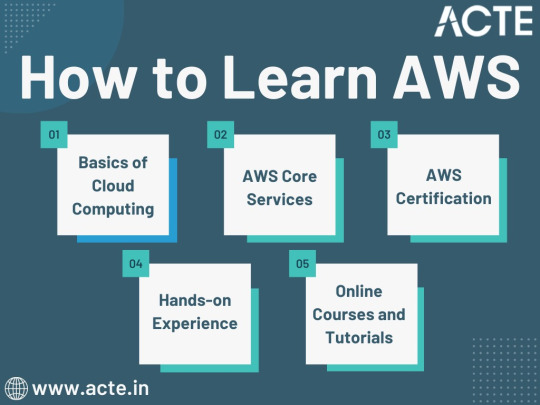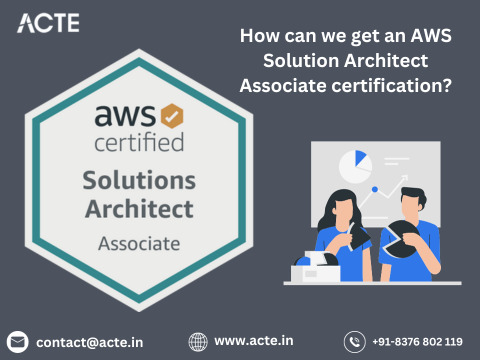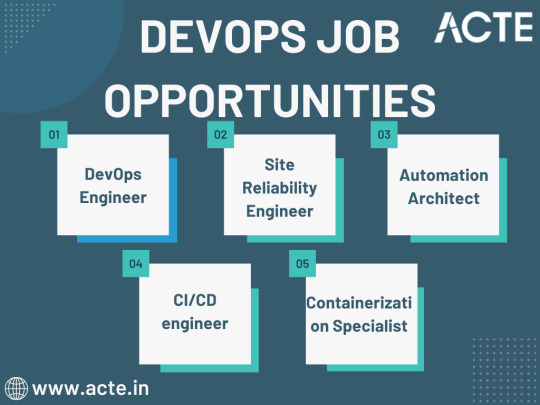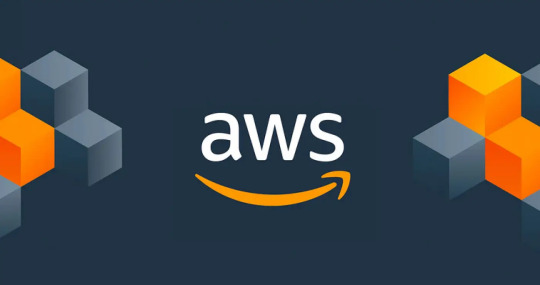#AWS Cloud Architect Course
Explore tagged Tumblr posts
Video
youtube
Course Introduction | AWS Full Course in Bangla | AWS Beginners
#youtube#AWS aws Awsome awsome awscloud awstraining cloud clouds clouds cloudyday cloudslime cloudcomputing cloudy cloudaccounting cloudscape cloudol#Course Introduction | AWS Full Course in Bangla | AWS Beginners#awsaws certificationaws solution architect certificationaws cloudaws tutorialaws tutorial for beginnersaws dumpsaws dumps 2023dumps 2023free
1 note
·
View note
Note
you know what this is about. so, without further ado: i'll let u pick between
Jocasta + tikken (tooka kitten)
and
Rael + shrimp cocktail
RAEL + SHRIMP COCKTAIL IT IS
Furthering my beloved "Dooku wouldn't know SHIT about fancy rich people stuff in his Jedi era" agenda. I got the idea for this because I literally watched a friend do the thing at the end.
*
“Finally.” The two Jedi crash into the backseat of the airtaxi, tangling as a pair of very long legs and two shorter, albeit slightly more intoxicated ones try to find room in the tight space. The droid driver acknowledges their Temple destination coordinates, and, with a lurch and swoop, they join the Coruscanti traffic and leave the heat and noise of the event behind them.
“What an utter, unconscionable disaster,” Dooku, usually the architect of such disasters on missions, announces before Rael can even put his standard distracting-him protocols in place. “A complete farce.”
“Aw, Master, it wasn’t so bad…”
Rael’s both lying and stalling, of course, trying to figure out which point of failure Dooku is even so upset about. If it’s related to Rael’s own misbehavior, or some social misstep of Dooku’s, or both.
“Really?” Dooku’s voice rises incredulously. He’s going wide: his internal targets expanding beyond the particulars into the concept itself, his exhaustion warring with his need to deliver a scathing monologue about the very existence of such fancy political events. “An egregious waste of taxpayer resources with no purpose but pageantry, overindulgence in liquor and ego in equal measures. And both tedious and invasive! For a Jedi of my position? The delegation from Mandriss clearly felt they were entitled to my entire life story.”
“Hmm.”
“And,” Dooku’s tone is aghast now, detailing the worst of the worst, “why do they even have that fork?”
Rael’s been doing the dutifully-listening Padawan bit, since it seems Dooku is just upset in general, not mad at him specifically, but the fork thing makes him snort. Too bad he wasn’t there to see whatever Dooku did with the fork.
“And you?” Dooku rounds on him. “Where were you? You left me trapped with that governor!”
Whoops. Distraction protocol. “I thought the whole thing was that you needed to talk to the governor. Fact-finding stuff. I was giving you space to work your magic!”
“Talk to him? Yes. I needed a single piece of information from him. But our good governor would simply not…” shut up is the sentiment that flashes like heat lightning behind Dooku’s clouded presence, but of course, his dear Master would never say such a thing, so he simply groans into his hands and continues his internal combustion.
It’s a little funny, or would be, if Rael didn’t actually feel bad for Dooku. Tall and elegant with a holostar’s velvet voice and a legitimate family connection to royal governance on Serenno, his Master makes an obvious choice to represent the Order at the occasional high-end political function. Except Rael knows Dooku’s heart is made for the battlefield, not the banquet hall. He actually loves that about him.
“I feel wretched,” Dooku admits, massaging his temples. His righteous outrage seems to be collapsing into ennui.
Odd. When they first started together as Master and Padawan, Rael thought Dooku was a complete stoic: an unfeeling mountain. Once you got to know him though, it was actually amazing how much bitching the man was capable of. Maybe it was that Dooku treated Rael differently now than he had when he was a little kid. There weren’t actually so many years between eighteen and twenty-nine.
“Yeah, yeah, you feel bad ‘cause you didn’t eat hardly anything.” Rael doesn’t have to guess: Dooku has that exact flavor of cranky that has the aftertaste of emptiness and unacknowledged need that always just made everything worse.
Dooku glowers at him.
Rael slings an arm around his shoulders, affection –or possibly the several atomic sting shots he’d taken with the bridesmaids - bubbling up in his chest. Hell, he loves this old man.
“Here,” Consoling now, Rael fishes into his robe pocket. “Want some shrimp?”
“Shrimp?”
He holds out the upsettingly pink offering for Dooku. Five nice, plump cocktail shrimp. Only a little warm from his body heat. Better that way, really.
Dooku is quiet.
“Got the cocktail sauce in the other pocket.”
Rael can’t decide if it is awe or horror dawning in his Master’s eyes. Hell, maybe it’s both.
“They weren’t… even serving shrimp?” That deep, polished voice of Dooku’s is oddly faint.
Yeah. Maybe not at the event Dooku was at. Now, at the wedding party taking place on the event space’s lower level, on the other hand… Rael fixes on his widest, most appealing grin.
A Master may keep a few private secrets, Dooku is sometimes fond of saying, usually about something totally obvious to Rael, like the source of the occasional mark on his collarbone, the one that's always the exact same size and shape as Sifo-Dyas’s mouth.
Well, Rael figures, a Padawan can keep some too.
Dooku glances between his open palm and his smile, calculations happening behind his eyes.
It doesn’t matter. Rael already knows he’s going to eat the shrimp.
#writing low stakes snippets to shake up my creative block over the next few days#so send me a character + prompt if you want one!#might post 'em all in a series on AO3 if I keep my steam up or not#thank you Boli for the great suggestion this was actually super fun <3 <3#I intended these to be much shorter but this one really got me
26 notes
·
View notes
Text
"From Passion to Profession: Steps to Enter the Tech Industry"
How to Break into the Tech World: Your Comprehensive Guide
In today’s fast-paced digital landscape, the tech industry is thriving and full of opportunities. Whether you’re a student, a career changer, or someone passionate about technology, you may be wondering, “How do I get into the tech world?” This guide will provide you with actionable steps, resources, and insights to help you successfully navigate your journey.
Understanding the Tech Landscape
Before you start, it's essential to understand the various sectors within the tech industry. Key areas include:
Software Development: Designing and building applications and systems.
Data Science: Analyzing data to support decision-making.
Cybersecurity: Safeguarding systems and networks from digital threats.
Product Management: Overseeing the development and delivery of tech products.
User Experience (UX) Design: Focusing on the usability and overall experience of tech products.
Identifying your interests will help you choose the right path.
Step 1: Assess Your Interests and Skills
Begin your journey by evaluating your interests and existing skills. Consider the following questions:
What areas of technology excite me the most?
Do I prefer coding, data analysis, design, or project management?
What transferable skills do I already possess?
This self-assessment will help clarify your direction in the tech field.
Step 2: Gain Relevant Education and Skills
Formal Education
While a degree isn’t always necessary, it can be beneficial, especially for roles in software engineering or data science. Options include:
Computer Science Degree: Provides a strong foundation in programming and system design.
Coding Bootcamps: Intensive programs that teach practical skills quickly.
Online Courses: Platforms like Coursera, edX, and Udacity offer courses in various tech fields.
Self-Learning and Online Resources
The tech industry evolves rapidly, making self-learning crucial. Explore resources like:
FreeCodeCamp: Offers free coding tutorials and projects.
Kaggle: A platform for data science practice and competitions.
YouTube: Channels dedicated to tutorials on coding, design, and more.
Certifications
Certifications can enhance your credentials. Consider options like:
AWS Certified Solutions Architect: Valuable for cloud computing roles.
Certified Information Systems Security Professional (CISSP): Great for cybersecurity.
Google Analytics Certification: Useful for data-driven positions.
Step 3: Build a Portfolio
A strong portfolio showcases your skills and projects. Here’s how to create one:
For Developers
GitHub: Share your code and contributions to open-source projects.
Personal Website: Create a site to display your projects, skills, and resume.
For Designers
Design Portfolio: Use platforms like Behance or Dribbble to showcase your work.
Case Studies: Document your design process and outcomes.
For Data Professionals
Data Projects: Analyze public datasets and share your findings.
Blogging: Write about your data analysis and insights on a personal blog.
Step 4: Network in the Tech Community
Networking is vital for success in tech. Here are some strategies:
Attend Meetups and Conferences
Search for local tech meetups or conferences. Websites like Meetup.com and Eventbrite can help you find relevant events, providing opportunities to meet professionals and learn from experts.
Join Online Communities
Engage in online forums and communities. Use platforms like:
LinkedIn: Connect with industry professionals and share insights.
Twitter: Follow tech influencers and participate in discussions.
Reddit: Subreddits like r/learnprogramming and r/datascience offer valuable advice and support.
Seek Mentorship
Finding a mentor can greatly benefit your journey. Reach out to experienced professionals in your field and ask for guidance.
Step 5: Gain Practical Experience
Hands-on experience is often more valuable than formal education. Here’s how to gain it:
Internships
Apply for internships, even if they are unpaid. They offer exposure to real-world projects and networking opportunities.
Freelancing
Consider freelancing to build your portfolio and gain experience. Platforms like Upwork and Fiverr can connect you with clients.
Contribute to Open Source
Engaging in open-source projects can enhance your skills and visibility. Many projects on GitHub are looking for contributors.
Step 6: Prepare for Job Applications
Crafting Your Resume
Tailor your resume to highlight relevant skills and experiences. Align it with the job description for each application.
Writing a Cover Letter
A compelling cover letter can set you apart. Highlight your passion for technology and what you can contribute.
Practice Interviewing
Prepare for technical interviews by practicing coding challenges on platforms like LeetCode or HackerRank. For non-technical roles, rehearse common behavioral questions.
Step 7: Stay Updated and Keep Learning
The tech world is ever-evolving, making it crucial to stay current. Subscribe to industry newsletters, follow tech blogs, and continue learning through online courses.
Follow Industry Trends
Stay informed about emerging technologies and trends in your field. Resources like TechCrunch, Wired, and industry-specific blogs can provide valuable insights.
Continuous Learning
Dedicate time each week for learning. Whether through new courses, reading, or personal projects, ongoing education is essential for long-term success.
Conclusion
Breaking into the tech world may seem daunting, but with the right approach and commitment, it’s entirely possible. By assessing your interests, acquiring relevant skills, building a portfolio, networking, gaining practical experience, preparing for job applications, and committing to lifelong learning, you’ll be well on your way to a rewarding career in technology.
Embrace the journey, stay curious, and connect with the tech community. The tech world is vast and filled with possibilities, and your adventure is just beginning. Take that first step today and unlock the doors to your future in technology!
contact Infoemation wensite: https://agileseen.com/how-to-get-to-tech-world/ Phone: 01722-326809 Email: [email protected]
#tech career#how to get into tech#technology jobs#software development#data science#cybersecurity#product management#UX design#tech education#networking in tech#internships#freelancing#open source contribution#tech skills#continuous learning#job application tips
8 notes
·
View notes
Text
How to Become a Cloud Computing Engineer
Introduction:
Cloud computing has become a cornerstone of modern IT infrastructure, making the role of a Cloud Computing Engineer highly in demand. If you're looking to enter this field, here's a roadmap to help you get started:
Build a Strong Foundation in IT A solid understanding of computer networks, operating systems, and basic programming is essential. Consider getting a degree in Computer Science or Information Technology. Alternatively, Jetking offer you to make your career in Cloud computing Courses and gain the technical knowledge needed.
Learn Cloud Platforms Familiarize yourself with popular cloud service providers such as AWS (Amazon Web Services), Microsoft Azure, and Google Cloud. Many platforms offer certification courses, like AWS Certified Solutions Architect, which will help validate your skills.
Gain Hands-On Experience Practical experience is critical. Set up your own cloud projects, manage databases, configure servers, and practice deploying applications. This will give you the real-world experience that employers seek.
Master Programming Languages Learn programming languages commonly used in cloud environments, such as Python, Java, or Ruby. Scripting helps automate tasks, making your work as a cloud engineer more efficient.
Understand Security in the Cloud Security is paramount in cloud computing. Gain knowledge of cloud security best practices, such as encryption, data protection, and compliance standards to ensure safe operations and become Master in cloud computing courses.
Get Certified Earning cloud certifications from AWS, Azure, or Google Cloud can enhance your credibility. Certifications like AWS Certified Cloud Practitioner or Microsoft Certified: Azure Fundamentals can provide you a competitive edge.
Keep Learning Cloud technology evolves rapidly, so continuous learning is key. Stay updated by taking advanced courses and attending cloud tech conferences.
Join Jetking today! Click Here
By building your expertise in these areas, you’ll be well on your way to a successful career as a Cloud Computing Engineer!
2 notes
·
View notes
Text
Top Courses for Aspiring Developers: Elevate Your Skills and Career
Nowadays everyone wants to enhance their skills and career. Everyone wants to improve their skills and take their career forward. You want to improve their skill and take your software development career to the next level.
Today’s tech-driven world, aspiring developers are in high demand. Here’s a guide to some of the top courses designed to elevate your skills and boost your career prospects in the field of software development. Developers use web development languages to help create dynamic web pages. The most common coding languages include Javascript, Python and C. we must constantly update our skills. We should assume good skills that will take our career forward. In this article, we will suggest courses that can help to make software developers.
1. Full-Stack Web Development
This course covers everything from front-end technologies like HTML, CSS, and JavaScript to back-end development with Node.js and Express. It’s ideal for those who want to become proficient in both client and server-side programming.
2. Data Science and Machine Learning
This specialization includes courses on machine learning, data mining, and data analysis. It provides a deep dive into algorithms, statistical methods, and practical applications.
3. Cloud Computing
This course prepares you for the AWS Certified Solutions Architect exam. It covers designing distributed systems, deploying scalable applications, and working with AWS services.
4. Mobile App Development
This series of courses is designed for aspiring iOS developers. It covers Swift programming, user interface design, and app development practices.
5. Cybersecurity
This specialization covers essential cybersecurity concepts, including risk management, cryptography, and network security. It’s designed for those interested in protecting systems and data.
6. Game Development
This specialization covers game design principles, development processes, and interactive media creation. It includes courses on Unity and Unreal Engine, two of the most popular game development platforms.
7. Software Engineering
This course provides a comprehensive overview of software engineering principles, including design patterns, testing, and project management.
8. DevOps
This course introduces key DevOps concepts such as continuous integration, continuous delivery, and infrastructure as code. It’s ideal for developers looking to improve collaboration between development and operations.
By identifying the right courses and doing those courses, we can follow the path of success. As you consider the courses to take, we should do the courses in which we are interest.
Top Courses for Aspiring Developers: Elevate Your Skills and Career
Nowadays everyone wants to enhance their skills and career. Everyone wants to improve their skills and take their career forward. You want to improve their skill and take your software development career to the next level.
Today’s tech-driven world, aspiring developers are in high demand. Here’s a guide to some of the top courses designed to elevate your skills and boost your career prospects in the field of software development. Developers use web development languages to help create dynamic web pages. The most common coding languages include Javascript, Python and C. we must constantly update our skills. We should assume good skills that will take our career forward. In this article, we will suggest courses that can help to make software developers.
1. Full-Stack Web Development
This course covers everything from front-end technologies like HTML, CSS, and JavaScript to back-end development with Node.js and Express. It’s ideal for those who want to become proficient in both client and server-side programming.
2. Data Science and Machine Learning
This specialization includes courses on machine learning, data mining, and data analysis. It provides a deep dive into algorithms, statistical methods, and practical applications.
3. Cloud Computing
This course prepares you for the AWS Certified Solutions Architect exam. It covers designing distributed systems, deploying scalable applications, and working with AWS services.
4. Mobile App Development
This series of courses is designed for aspiring iOS developers. It covers Swift programming, user interface design, and app development practices.
5. Cybersecurity
This specialization covers essential cybersecurity concepts, including risk management, cryptography, and network security. It’s designed for those interested in protecting systems and data.
6. Game Development
This specialization covers game design principles, development processes, and interactive media creation. It includes courses on Unity and Unreal Engine, two of the most popular game development platforms.
7. Software Engineering
This course provides a comprehensive overview of software engineering principles, including design patterns, testing, and project management.
8. DevOps
This course introduces key DevOps concepts such as continuous integration, continuous delivery, and infrastructure as code. It’s ideal for developers looking to improve collaboration between development and operations.
By identifying the right courses and doing those courses, we can follow the path of success. As you consider the courses to take, we should do the courses in which we are interest.
2 notes
·
View notes
Text
Journey to AWS Proficiency: Unveiling Core Services and Certification Paths
Amazon Web Services, often referred to as AWS, stands at the forefront of cloud technology and has revolutionized the way businesses and individuals leverage the power of the cloud. This blog serves as your comprehensive guide to understanding AWS, exploring its core services, and learning how to master this dynamic platform. From the fundamentals of cloud computing to the hands-on experience of AWS services, we'll cover it all. Additionally, we'll discuss the role of education and training, specifically highlighting the value of ACTE Technologies in nurturing your AWS skills, concluding with a mention of their AWS courses.

The Journey to AWS Proficiency:
1. Basics of Cloud Computing:
Getting Started: Before diving into AWS, it's crucial to understand the fundamentals of cloud computing. Begin by exploring the three primary service models: Infrastructure as a Service (IaaS), Platform as a Service (PaaS), and Software as a Service (SaaS). Gain a clear understanding of what cloud computing is and how it's transforming the IT landscape.
Key Concepts: Delve into the key concepts and advantages of cloud computing, such as scalability, flexibility, cost-effectiveness, and disaster recovery. Simultaneously, explore the potential challenges and drawbacks to get a comprehensive view of cloud technology.
2. AWS Core Services:
Elastic Compute Cloud (EC2): Start your AWS journey with Amazon EC2, which provides resizable compute capacity in the cloud. Learn how to create virtual servers, known as instances, and configure them to your specifications. Gain an understanding of the different instance types and how to deploy applications on EC2.
Simple Storage Service (S3): Explore Amazon S3, a secure and scalable storage service. Discover how to create buckets to store data and objects, configure permissions, and access data using a web interface or APIs.
Relational Database Service (RDS): Understand the importance of databases in cloud applications. Amazon RDS simplifies database management and maintenance. Learn how to set up, manage, and optimize RDS instances for your applications. Dive into database engines like MySQL, PostgreSQL, and more.
3. AWS Certification:
Certification Paths: AWS offers a range of certifications for cloud professionals, from foundational to professional levels. Consider enrolling in certification courses to validate your knowledge and expertise in AWS. AWS Certified Cloud Practitioner, AWS Certified Solutions Architect, and AWS Certified DevOps Engineer are some of the popular certifications to pursue.
Preparation: To prepare for AWS certifications, explore recommended study materials, practice exams, and official AWS training. ACTE Technologies, a reputable training institution, offers AWS certification training programs that can boost your confidence and readiness for the exams.
4. Hands-on Experience:
AWS Free Tier: Register for an AWS account and take advantage of the AWS Free Tier, which offers limited free access to various AWS services for 12 months. Practice creating instances, setting up S3 buckets, and exploring other services within the free tier. This hands-on experience is invaluable in gaining practical skills.
5. Online Courses and Tutorials:
Learning Platforms: Explore online learning platforms like Coursera, edX, Udemy, and LinkedIn Learning. These platforms offer a wide range of AWS courses taught by industry experts. They cover various AWS services, architecture, security, and best practices.
Official AWS Resources: AWS provides extensive online documentation, whitepapers, and tutorials. Their website is a goldmine of information for those looking to learn more about specific AWS services and how to use them effectively.

Amazon Web Services (AWS) represents an exciting frontier in the realm of cloud computing. As businesses and individuals increasingly rely on the cloud for innovation and scalability, AWS stands as a pivotal platform. The journey to AWS proficiency involves grasping fundamental cloud concepts, exploring core services, obtaining certifications, and acquiring practical experience. To expedite this process, online courses, tutorials, and structured training from renowned institutions like ACTE Technologies can be invaluable. ACTE Technologies' comprehensive AWS training programs provide hands-on experience, making your quest to master AWS more efficient and positioning you for a successful career in cloud technology.
8 notes
·
View notes
Text
Road to AWS Mastery: A Blueprint for Solutions Architect – Associate Success
In the dynamic landscape of cloud computing, achieving the AWS Certified Solutions Architect – Associate certification is a noteworthy accomplishment, showcasing proficiency in Amazon Web Services (AWS) architecture. Guided by AWS Training in Pune, professionals can acquire the skills essential for harnessing the expansive capabilities of AWS across diverse applications and industries.

The Significance of AWS Certified Solutions Architect – Associate Certification
Attaining this certification demands a strategic and structured approach to preparation. Let's explore a step-by-step guide to help individuals chart their course towards success in obtaining this highly coveted certification.
1. Decipher the Exam Blueprint: Begin by familiarizing yourself with the exam blueprint, a comprehensive guide delineating the topics and skills covered in the certification exam. This serves as a strategic roadmap for targeted study efforts.
2. Immerse in Practical Experience: Practical familiarity with AWS services is paramount. The AWS Free Tier provides professionals with an opportunity for hands-on practice, allowing them to navigate and understand AWS services in a real-world context.
3. Explore Exam Resources: Dive into the AWS Certified Solutions Architect – Associate Exam Readiness course, an invaluable resource designed to prepare candidates for the certification journey. Additionally, delve into relevant whitepapers to gain a holistic understanding.
4. Enlist in Online Learning Platforms: Platforms like A Cloud Guru offer structured online courses meticulously aligned with exam objectives. These courses deliver comprehensive coverage, enhancing candidates' readiness for the certification examination.
5. Delve into AWS Documentation: Navigate through the official AWS documentation to cultivate a profound understanding of AWS services. This extensive resource acts as a guide for mastering the nuances of various AWS components.
6. Leverage Practice Exams: Assess your preparedness by engaging in online practice exams. These simulations mirror the exam environment, allowing candidates to identify areas that may require additional focus and refinement.

7. Participate in AWS Communities: Joining AWS forums and communities provides a collaborative space for seeking advice, sharing experiences, and gaining insights from peers who are also navigating the certification journey.
8. Embrace Hands-On Labs: Reinforce theoretical knowledge through participation in practical labs and workshops provided by AWS. These hands-on experiences contribute significantly to a deeper and more practical understanding of AWS services.
9. Grasp the Well-Architected Framework: Familiarize yourself with the AWS Well-Architected Framework – a compendium of best practices for designing and operating systems in the cloud. This framework serves as a foundational reference for the certification, guiding candidates towards optimal architecture.
10. Stay Informed and Updated: AWS is dynamic, evolving with regular updates and feature additions. Consistently follow AWS blogs and announcements to stay abreast of the latest developments, ensuring alignment with current exam objectives.
By adhering to this meticulously crafted guide, individuals can enhance their preparedness and significantly improve their prospects of achieving the AWS Certified Solutions Architect – Associate certification. Beyond validating expertise, this certification opens doors to exciting opportunities in the ever-evolving realm of cloud computing. Best wishes to those embarking on their journey to AWS mastery!
2 notes
·
View notes
Text
Embarking on a Digital Journey: Your Guide to Learning Coding
In today's fast-paced and ever-evolving technology landscape, DevOps has emerged as a crucial and transformative field that bridges the gap between software development and IT operations. The term "DevOps" is a portmanteau of "Development" and "Operations," emphasizing the importance of collaboration, automation, and efficiency in the software delivery process. DevOps practices have gained widespread adoption across industries, revolutionizing the way organizations develop, deploy, and maintain software. This paradigm shift has led to a surging demand for skilled DevOps professionals who can navigate the complex and multifaceted DevOps landscape.

Exploring DevOps Job Opportunities
DevOps has given rise to a spectrum of job opportunities, each with its unique focus and responsibilities. Let's delve into some of the key DevOps roles that are in high demand:
1. DevOps Engineer
At the heart of DevOps lies the DevOps engineer, responsible for automating and streamlining IT operations and processes. DevOps engineers are the architects of efficient software delivery pipelines, collaborating closely with development and IT teams. Their mission is to accelerate the software delivery process while ensuring the reliability and stability of systems.
2. Site Reliability Engineer (SRE)
Site Reliability Engineers, or SREs, are a subset of DevOps engineers who specialize in maintaining large-scale, highly reliable software systems. They focus on critical aspects such as availability, latency, performance, efficiency, change management, monitoring, emergency response, and capacity planning. SREs play a pivotal role in ensuring that applications and services remain dependable and performant.
3. Automation Architect
Automation is a cornerstone of DevOps, and automation architects are experts in this domain. These professionals design and implement automation solutions that optimize software development and delivery processes. By automating repetitive and manual tasks, they enhance efficiency and reduce the risk of human error.
4. Continuous Integration/Continuous Deployment (CI/CD) Engineer
CI/CD engineers specialize in creating, maintaining, and optimizing CI/CD pipelines. The CI/CD pipeline is the backbone of DevOps, enabling the automated building, testing, and deployment of code. CI/CD engineers ensure that the pipeline operates seamlessly, enabling rapid and reliable software delivery.
5. Containerization Specialist
The rise of containerization technologies like Docker and orchestration tools such as Kubernetes has revolutionized software deployment. Containerization specialists focus on managing and scaling containerized applications, making them an integral part of DevOps teams.

Navigating the DevOps Learning Journey
To embark on a successful DevOps career, individuals often turn to comprehensive training programs and courses that equip them with the necessary skills and knowledge. The DevOps learning journey typically involves the following courses:
1. DevOps Foundation
A foundational DevOps course covers the basics of DevOps practices, principles, and tools. It serves as an excellent starting point for beginners, providing a solid understanding of the DevOps mindset and practices.
2. DevOps Certification
Advanced certification courses are designed for those who wish to delve deeper into DevOps methodologies, CI/CD pipelines, and various tools like Jenkins, Ansible, and Terraform. These certifications validate your expertise and enhance your job prospects.
3. Docker and Kubernetes Training
Containerization and container orchestration are two essential skills in the DevOps toolkit. Courses focused on Docker and Kubernetes provide in-depth knowledge of these technologies, enabling professionals to effectively manage containerized applications.
4. AWS or Azure DevOps Training
Specialized DevOps courses tailored to cloud platforms like AWS or Azure are essential for those working in a cloud-centric environment. These courses teach how to leverage cloud services in a DevOps context, further streamlining software development and deployment.
5. Advanced DevOps Courses
For those looking to specialize in specific areas, advanced DevOps courses cover topics like DevOps security, DevOps practices for mobile app development, and more. These courses cater to professionals who seek to expand their expertise in specific domains.
As the DevOps landscape continues to evolve, the need for high-quality training and education becomes increasingly critical. This is where ACTE Technologies steps into the spotlight as a reputable choice for comprehensive DevOps training.
They offer carefully thought-out courses that are intended to impart both foundational information and real-world, practical experience. Under the direction of knowledgeable educators, students can quickly advance on their path to become skilled DevOps engineers. They provide practical insights into industrial practises and issues, going beyond theory.
Your journey toward mastering DevOps practices and pursuing a successful career begins here. In the digital realm, where possibilities are limitless and innovation knows no bounds, ACTE Technologies serves as a gateway to a thriving DevOps career. With a diverse array of courses and expert instruction, you'll find the resources you need to thrive in this ever-evolving domain.
3 notes
·
View notes
Text
Top 20 Courses For Aws Certified Solutions Architect — Associate(saa-c03)
Are you looking to become an AWS Certified Solutions Architect — Associate? If so, then you’re in the right place. In this article, we’ll be discussing the top 20 courses for the AWS Certified Solutions Architect — Associate (SAA-C03) certification.
Are you looking to become an AWS Certified Solutions Architect — Associate? If so, then you’re in the right place. In this article, we’ll be discussing the top 20 courses for the AWS Certified Solutions Architect — Associate (SAA-C03) certification: More details available here
AWS Certified Solutions Architect — Associate (SAA-C03) Certification by Udemy
AWS Certified Solutions Architect — Associate (SAA-C03) Certification by A Cloud Guru
AWS Certified Solutions Architect — Associate (SAA-C03) Exam Guide by Pluralsight
AWS Certified Solutions Architect — Associate (SAA-C03) Exam Prep Course by Linux Academy
AWS Certified Solutions Architect — Associate (SAA-C03) Exam Review by ExamPro
AWS Certified Solutions Architect — Associate (SAA-C03) Ultimate Course by Digital Cloud Training
AWS Certified Solutions Architect — Associate (SAA-C03) Exam Prep by Udacity
AWS Certified Solutions Architect Associate 2022 — Udemy
AWS Certified Solutions Architect — Associate (SAA-C03) Certification Training by Simplilearn
AWS Certified Solutions Architect — Associate (SAA-C03) Exam Preparation by Cloud Academy
AWS Certified Solutions Architect — Associate (SAA-C03) Ultimate Course by Digital Cloud Training: Part 1
AWS Certified Solutions Architect — Associate (SAA-C03) Exam Preparation by Testprep Training
AWS Certified Solutions Architect — Associate (SAA-C03) Certification Training by Edureka
AWS Certified Solutions Architect — Associate (SAA-C03) Exam Prep Course by Kryterion
AWS Certified Solutions Architect — Associate (SAA-C03) Exam Review by CBT Nuggets
AWS Certified Solutions Architect — Associate (SAA-C03) Training by Exam Collection
AWS Certified Solutions Architect — Associate (SAA-C03) Exam Prep by Global Knowledge
AWS Certified Solutions Architect — Associate (SAA-C03) Exam Guide by Udemy
AWS Certified Solutions Architect — Associate (SAA-C03) Exam Preparation by Infosec
AWS Certified Solutions Architect — Associate (SAA-C03) Exam Prep Course by Whizlabs More details available here
3 notes
·
View notes
Text
Best Snowflake Online Course Hyderabad | Snowflake Course

Snowflake Training Explained: What to Expect
Snowflake Online Course Hyderabad has gained immense popularity as a cloud-based data platform. Businesses and professionals are eager to master it for better data management, analytics, and performance. If you're considering Snowflake training, you might be wondering what to expect. This article provides a comprehensive overview of the learning process, key topics covered, and benefits of training.
Snowflake is a cloud-native data warehouse that supports structured and semi-structured data. It runs on major cloud providers like AWS, Azure, and Google Cloud. Learning Snowflake can enhance your skills in data engineering, analytics, and business intelligence. Snowflake Course
Who Should Enrol in Snowflake Training?
Snowflake training is ideal for various professionals. Whether you are a beginner or an experienced data expert, the training can be tailored to your needs. Here are some of the key roles that benefit from Snowflake training:
Data Engineers – Learn how to build and manage data pipelines.
Data Analysts – Gain insights using SQL and analytics tools.
Database Administrators – Optimize database performance and security.
Cloud Architects – Understand Snowflake's architecture and integration.
Business Intelligence Professionals – Enhance reporting and decision-making.
Even if you have basic SQL knowledge, you can start learning Snowflake. Many courses cater to beginners, covering fundamental concepts before diving into advanced topics.
Key Topics Covered in Snowflake Training
A well-structured Snowflake Online Course program covers a range of topics. Here are the core areas you can expect:
1. Introduction to Snowflake Architecture
Understanding Snowflake’s multi-cluster shared data architecture is crucial. Training explains how Snowflake separates compute, storage, and services, offering scalability and performance benefits.
2. Working with Databases, Schemas, and Tables
You’ll learn how to create and manage databases, schemas, and tables. The training covers structured and semi-structured data handling, including JSON, Parquet, and Avro file formats.
3. Writing and Optimizing SQL Queries
SQL is the backbone of Snowflake Course covers SQL queries, joins, aggregations, and analytical functions. You’ll also learn query optimization techniques to improve efficiency.
4. Snowflake Data Sharing and Security
Snowflake allows secure data sharing across different organizations. The training explains role-based access control (RBAC), encryption, and compliance best practices.
5. Performance Tuning and Cost Optimization
Understanding how to optimize performance and manage costs is essential. You’ll learn about virtual warehouses, caching, and auto-scaling to enhance efficiency.
6. Integration with BI and ETL Tools
Snowflake integrates with tools like Tableau, Power BI, and ETL platforms such as Apache Airflow and Matillion. Training explores these integrations to streamline workflows.
7. Data Loading and Unloading Techniques
You'll learn how to load data into Snowflake using COPY commands, Snow pipe, and bulk load methods. The training also covers exporting data in different formats.
Learning Modes: Online vs. Instructor-Led Training
When choosing a Snowflake training program, you have two main options: online self-paced courses or instructor-led training. Each has its pros and cons.
Online Self-Paced Training
Flexible learning schedule.
Affordable compared to instructor-led courses.
Access to recorded sessions and study materials.
Suitable for individuals who prefer self-learning.
Instructor-Led Training
Live interaction with experienced trainers.
Opportunity to ask questions and clarify doubts.
Hands-on projects and real-time exercises.
Structured curriculum with guided learning.
Your choice depends on your learning style, budget, and time availability. Some platforms offer a combination of both for a balanced experience.
Benefits of Snowflake Training
Investing in Snowflake training offers numerous advantages. Here’s why it’s worth considering:
1. High Demand for Snowflake Professionals
Organizations worldwide are adopting Snowflake, creating a demand for skilled professionals. Earning Snowflake expertise can open new career opportunities.
2. Better Data Management Skills
Snowflake training equips you with best practices for handling large-scale data. You’ll learn how to manage structured and semi-structured data efficiently.
3. Improved Job Prospects and Salary Growth
Certified Snowflake professionals often receive higher salaries. Many organizations prefer candidates with Snowflake expertise over traditional database management skills.
4. Real-World Project Experience
Most training programs include hands-on projects that simulate real-world scenarios. This experience helps in applying theoretical knowledge to practical use cases.
5. Enhanced Business Intelligence Capabilities
With Snowflake training, you can improve data analytics and reporting skills. This enables businesses to make data-driven decisions more effectively.
How to Choose the Right Snowflake Training Program
With various training providers available, choosing the right one is crucial. Here are some factors to consider:
Accreditation and Reviews – Look for well-reviewed courses from reputable providers.
Hands-on Labs and Projects – Practical exercises help reinforce learning.
Certification Preparation – If you're aiming for Snowflake certification, choose a course that aligns with exam objectives.
Support and Community – A strong community and mentor support can enhance learning.
Conclusion
Snowflake training is an excellent investment for data professionals. Whether you're a beginner or an experienced database expert, learning Snowflake can boost your career prospects. The training covers essential concepts such as architecture, SQL queries, performance tuning, security, and integrations.
Choosing the right training format—self-paced or instructor-led—depends on your learning preferences. With growing demand for Snowflake professionals, gaining expertise in this platform can lead to better job opportunities and higher salaries. If you’re considering a career in data engineering, analytics, or cloud computing, Snowflake training is a smart choice.
Start your Snowflake learning journey today with Visualpath and take your data skills to the next level!
Visualpath is the Leading and Best Institute for learning in Hyderabad. We provide Snowflake Online Training. You will get the best course at an affordable cost.
For more Details Contact +91 7032290546
Visit: https://www.visualpath.in/snowflake-training.html
#Snowflake Training#Snowflake Online Training#Snowflake Training in Hyderabad#Snowflake Training in Ameerpet#Snowflake Course#Snowflake Training Institute in Hyderabad#Snowflake Online Course Hyderabad#Snowflake Online Training Course#Snowflake Training in Chennai#Snowflake Training in Bangalore#Snowflake Training in India#Snowflake Course in Ameerpet
0 notes
Text
To get 100% on your first attempt at the Amazon CLF-C02 (AWS Certified Cloud Practitioner) exam, follow these steps:
1. Understand the Exam Structure
Domains Covered:
Cloud Concepts (24%)
Security and Compliance (30%)
Cloud Technology and Services (34%)
Billing, Pricing, and Support (12%)
Number of Questions: ~65 (Multiple-choice & Multiple-response)
Time Limit: 90 minutes
Passing Score: ~700/1000
2. Study the Right Resources
AWS Cloud Practitioner Essentials Course (Free on AWS Training)
AWS Whitepapers:
AWS Well-Architected Framework
AWS Pricing Overview
AWS Security Best Practices
AWS FAQs (for services like EC2, S3, IAM, RDS, etc.)
AWS Skill Builder (practice tests & labs)
3. Take Practice Exams
Use AWS Official Practice Tests and Udemy / Whizlabs / Tutorials Dojo practice questions.
Analyze mistakes and review weak topics.
4. Hands-On Experience
Create a Free AWS Account and practice:
Launching an EC2 instance
Creating an S3 bucket
Configuring IAM users, groups, and policies
Exploring AWS Billing Dashboard
5. Exam Strategy
Read questions carefully (watch for tricky wording).
Eliminate incorrect choices before selecting your answer.
Manage your time well (1.5 minutes per question).
Mark for review if unsure and revisit before submitting.
Clearcatnet is a great resource for preparing for the AWS Certified Cloud Practitioner (CLF-C02) exam. They provide:
High-quality practice questions that closely match the real exam Detailed explanations for each answer Updated content aligned with AWS exam objectives Exam simulations to help you get comfortable with the format
Using ClearCat along with AWS official resources, whitepapers, and hands-on practice will boost your chances of scoring 100% on your first attempt
1 note
·
View note
Text
aws cloud engineer course
Master AWS cloud technologies with Open Cusp’s AWS Cloud Engineer Course. Gain hands-on experience in cloud architecture, security, networking, and DevOps. Learn from industry experts and prepare for AWS certifications to advance your career in cloud computing. Perfect for beginners and professionals looking to upskill. 🚀
Enroll today!

1 note
·
View note
Text
Learn DevOps with Network Nuts – 100% Job Assistance & Expert Training
In today’s competitive IT industry, DevOps has become a must-have skill for professionals looking to accelerate their careers. Companies are constantly seeking skilled DevOps Engineers who can automate workflows, optimize deployments, and enhance collaboration between development and operations teams.
If you’re looking for the best DevOps training with 100% job assistance, Network Nuts is your ideal learning partner. With a team of 30+ expert trainers, hands-on learning, and a job-oriented approach, we help you master DevOps and land your dream job.
Why Choose DevOps as a Career?
🔹 High Demand – DevOps professionals are among the highest-paid in the IT industry. 🔹 Career Growth – Companies across the globe are shifting to DevOps, creating endless job opportunities. 🔹 Job Security – DevOps skills ensure long-term job stability in cloud computing and automation.
Why Learn DevOps with Network Nuts?
🚀 100% Job Assistance – We Help You Get Hired!
Our commitment doesn’t end with training – we assist you in securing high-paying DevOps jobs. Our dedicated placement team provides: ✅ Resume Building & Optimization ✅ Interview Preparation & Mock Interviews ✅ Job Referrals & Corporate Tie-Ups ✅ Career Guidance & Soft Skills Training
🎓 Learn from 30+ Industry Experts
With over 30+ certified trainers, you get real-world experience, mentorship, and deep insights into the latest DevOps technologies.
🛠️ Hands-on, Practical Learning Approach
At Network Nuts, we believe in learning by doing. Our training includes: ✅ Real-World Projects & Case Studies ✅ Live Practical Labs & Assignments ✅ Simulation of IT Work Environments
🌍 Flexible Online & Classroom Training
Whether you prefer self-paced learning, live online sessions, or classroom training, we provide flexible learning options tailored to your needs.
🎯 Certifications & Job Readiness
Get industry-recognized certifications and stand out in job interviews. We help you prepare for: ✅ AWS Certified DevOps Engineer ✅ Kubernetes Certifications (CKA, CKAD) ✅ Terraform & Ansible Certifications
Who Can Join This DevOps Course?
💼 IT Professionals looking to transition into DevOps 💻 System Administrators & Cloud Engineers 🛠️ Software Developers & Testers 🎓 Freshers & Graduates aiming for an IT career
Join Network Nuts & Kickstart Your DevOps Career Today!
With 100% job assistance, hands-on training, and expert mentorship, Network Nuts ensures that you learn, practice, and get hired in top IT companies.
Why Should You Learn DevOps Now?
✔ High-Paying Jobs – DevOps Engineers earn an average salary of ₹8L–₹30L per year. ✔ Huge Demand – Companies like Amazon, Google, and Infosys are hiring DevOps experts daily. ✔ Fast Career Growth – DevOps opens doors to SRE, Cloud Architect, and Automation Engineer roles.
What Makes Network Nuts Different?
✅ Learn from 30+ Industry Experts – Hands-on training from experienced professionals. ✅ 100% Job Assistance – Resume building, mock interviews & guaranteed job referrals. ✅ Practical Learning – Real-world projects, live sessions & certification support. ✅ Master In-Demand Tools – Linux, Docker, Kubernetes, Terraform, Jenkins & AWS. ✅ Flexible Learning Options – Online & classroom training to fit your schedule.
🎯 Who Can Join?
🔹 IT Professionals looking to switch to DevOps 🔹 Freshers & Graduates aiming for a high-paying IT career 🔹 System Administrators & Developers wanting to upskill 🔹 Cloud & Networking Engineers seeking automation expertise 🔹 Non It Can also do DevOps
🚀 Don’t Wait—Take Action NOW! 📞 Call us today: +91 98180 40117 🌍 Visit our website & Enroll: https://www.networknuts.net/
👉 Limited Seats Available! Start Your DevOps Journey Today!
🚀 Don’t wait! Book a free demo session and take the first step toward your DevOps career.
👉 Visit Network Nuts Website to enroll now!
#Devops Course online#Devops Online Training#Learn Devops#Devops certificate course#Devops#Networknuts
1 note
·
View note
Text
Top Certification Courses to Advance Your Career in 2025

The job market in 2025 is going to be tougher than ever. If you want to stand out and land better opportunities, certification courses are your best friend. They not only show off your skills but also make sure you're up-to-date with the latest trends in your field.
Thanks to platforms like Guruface, it’s now super easy to learn online and get certified in the most in-demand fields. Whether you're aiming to climb the career ladder or switch to a new industry, let’s explore the best certification courses you can take to get ahead.
Why Certifications Are a Game-Changer
Think of certifications as proof of your expertise. They:
Make your resume stand out.
Help you negotiate better pay.
Open doors to promotions or new jobs.
But that’s not all. Certifications keep you competitive, especially in tech-driven industries like IT, cybersecurity, data science, and cloud computing.
With platforms like Guruface, you can get certified without worrying about juggling work, life, and studies. Guruface offers flexible, self-paced courses that fit into your schedule.
The Best Certification Courses for 2025
1. Project Management Certification
Good project managers are always in demand. Certifications like PMP (Project Management Professional) and PRINCE2 help you lead projects, manage teams, and deliver results.
Why it’s great: These certifications show you can handle complex projects, making you a valuable hire.
At Guruface, you’ll get all the resources you need to pass your project management certification on your first try.
2. Cybersecurity Certification
With data breaches and hacking on the rise, cybersecurity is a hot career choice. Certifications like Certified Ethical Hacker (CEH) and CompTIA Security+ teach you how to secure networks and stop cyberattacks.
Why it’s great: Businesses need experts to protect their systems, and they’re willing to pay top dollar for it.
Guruface’s courses break down complex concepts into simple lessons, making it easier to master cybersecurity skills.
3. Cloud Computing Certification
More companies are moving their operations to the cloud, creating a huge demand for certified cloud professionals. Certifications like AWS Certified Solutions Architect and Microsoft Azure Fundamentals prove you can manage cloud systems efficiently.
Why it’s great: These skills make you a go-to expert for companies upgrading their tech.
With Guruface, you’ll learn the ins and outs of cloud computing through interactive lessons and hands-on projects.
4. Data Science and AI Certification

Data is the backbone of decision-making in almost every industry. Certifications in Google Data Analytics or AI/ML (Artificial Intelligence/Machine Learning) teach you how to analyze data and build smart systems.
Why it’s great: These are high-paying, high-growth roles that are shaping the future.
Guruface offers easy-to-follow data science and AI courses with real-world examples, so you can learn by doing.
5. IT Certifications

From troubleshooting networks to managing IT systems, certifications like CompTIA Network+ and CCNA (Cisco Certified Network Associate) are perfect for IT professionals.
Why it’s great: These certifications are the foundation of a solid IT career.
Guruface helps you master the technical skills needed to excel in these roles with clear, step-by-step guidance.
6. Digital Marketing Certifications
Digital marketing is booming, and companies need experts to manage SEO, social media, and ads. Certifications like Google Ads Certification and Digital Marketing Specialist give you the skills to run successful campaigns.
Why it’s great: Digital marketing is essential for businesses, and skilled marketers are always in demand.
With Guruface, you can learn marketing strategies that get real results for clients or your own business.
7. Software Development Certifications
If you love coding, certifications like Certified Java Programmer or Full-Stack Developer Certification are great options. They teach you how to build apps, websites, and software systems.
Why it’s great: Coding is a universal skill that opens up endless career possibilities.
Guruface offers beginner-friendly and advanced programming courses, so you can start wherever you’re comfortable.
How to Choose the Right Certification
Choosing the right certification can be overwhelming, but here’s how to simplify it:

Know your goals: Are you switching careers or growing in your current one?
Check industry trends: Look for certifications that are in demand in your field.
Find flexible options: Platforms like Guruface let you learn at your own pace.
Start small: If you're new, begin with foundational courses and build up.
Why Guruface Is Your Best Bet
Guruface isn’t just another online platform—it’s a complete solution for learners. Here’s why thousands trust it:
Affordable and Accessible: Learn from anywhere without breaking the bank.
Expert-Led Courses: Get trained by professionals who’ve been there and done that.
Community Support: Join a network of learners and mentors to stay motivated.
From mock exams to interactive lessons, Guruface makes sure you succeed not just in the course but in your career.
Ready to Level Up?
Investing in certification courses is the smartest career move you can make in 2025. With platforms like Guruface, learning is convenient, effective, and tailored to your needs.
So, what are you waiting for? Explore Guruface’s courses today and take the first step toward a brighter, better career. Your future self will thank you!
0 notes
Text
The Ultimate Guide to a Full Stack Developer
Full Stack Developers are highly sought after in today's very competitive tech sector. Companies are constantly seeking professionals who can work on both frontend and backend development, making Full Stack Development one of the most rewarding career paths. If you are looking to enhance your technical skills and boost your career, enrolling in a Full Stack Developer Course is a great choice.
What is a Full Stack Developer?
A professional having knowledge of both frontend and backend technologies is known as a full stack developer. They can develop, design, and manage web applications from start to finish, ensuring seamless performance. Full Stack Developers work with databases, servers, system architecture, and user interface (UI) elements.
Why Take a Full Stack Developer Course?
High Demand & Lucrative Career Opportunities – With the increasing reliance on web applications, companies need skilled developers who can handle both client and server-side development. The demand for Full Stack Developers has surged in recent years, making it a promising career choice.
Flexibility – Whole Stack Because they can work on a variety of technologies, developers are an invaluable asset to any company. They can switch between frontend and backend roles based on project requirements.
Faster Career Growth – Mastering Full Stack Development can open doors to senior positions such as Software Architect, Technical Lead, and Product Manager. Many companies prefer hiring Full Stack Developers because they reduce dependency on multiple specialized developers.
Freelance & Startup Opportunities – With Full Stack skills, you can work as a freelancer or build your own startup with minimal hiring needs. Having expertise in both frontend and backend development allows you to develop complete applications independently.
Problem-Solving Ability: Since developers must comprehend how various web application components interact with one another, learning full stack development improves problem-solving abilities.
Important Technologies Included in a Course for Full Stack Developers
Numerous technologies are covered in a full stack developer course, such as:
Frontend Technologies
HTML, CSS, and JavaScript – The core languages for designing and structuring web pages.
React.js, Angular, or Vue.js – Popular JavaScript frameworks for building dynamic user interfaces.
Bootstrap & Tailwind CSS – Frameworks for responsive web design.
Backend Technologies
Node.js, Express.js – Server-side frameworks that help in handling requests and database interactions.
Django, Flask (Python) – Frameworks for Python-based backend development.
Ruby on Rails, PHP Laravel – Other popular backend development frameworks.
RESTful APIs & GraphQL – For efficient data communication between frontend and backend.
Database Management
SQL (MySQL, PostgreSQL) – Relational databases for structured data storage.
NoSQL (MongoDB, Firebase) – Document-oriented databases for scalable applications.
ORM (Object-Relational Mapping) Tools – Such as Sequelize and Mongoose for interacting with databases efficiently.
Version Control & Deployment
Git & GitHub – For tracking code changes and collaboration.
Docker & Kubernetes – For containerization and microservices deployment.
Cloud Platforms (AWS, Azure, Google Cloud) – For hosting and managing applications.
CI/CD Pipelines – For automating software deployment.
Additional Tools & Soft Skills
Authentication & Security – Using OAuth, JWT, and encryption techniques.
Testing & Debugging – Writing unit and integration tests to ensure application reliability.
Soft Skills – Communication, teamwork, and time management are essential for Full Stack Developers.
Who Needs to Take a Course on Full Stack Development?
Beginners – If you are new to coding, this course will help you learn from scratch.
Software Engineers & Web Developers – To expand their skill set and work on complete web applications.
Entrepreneurs & Freelancers – Who want to develop their own web applications without hiring multiple developers.
Students & Career Switchers – Looking to break into the tech industry with an in-demand skill set.
IT Professionals – Who want to upgrade their knowledge and stay relevant in the industry.
How Can I Pick the Best Course for Full Stack Developers?
Take into account the following elements when choosing a Full Stack Developer Course:
Curriculum – Ensure the course covers modern technologies and frameworks.
Project-Based Learning: To obtain real-world experience, practical projects are crucial.
Expertise of the Instructors: Select a course offered by knowledgeable experts.
Certification & Placement Assistance – Courses that offer certificates and job placement support can be beneficial.
Flexibility – Look for online, part-time, or full-time options based on your schedule.
Internship Opportunities – Some courses offer internship programs to provide real-world exposure.
Prospects for Employment Following Completion of a Full Stack Developer Course
Upon completing a Full Stack Developer Course, numerous job opportunities open up, including:
A full-stack developer creates and manages entire web apps.
Building user interfaces is the area of expertise for frontend developers.
Backend developers work with databases and server-side programming.
DevOps Engineer – Manage deployment, scaling, and infrastructure automation.
Software engineers are experts in a variety of technologies who create enterprise applications.
Freelancer/Entrepreneur – Build your own web applications or work independently.
Conclusion
A Full Stack Developer Course is a valuable investment for anyone looking to build a strong career in web development. With the right training, you can master frontend and backend technologies, work on real-world projects, and land high-paying job opportunities. Whether you are a beginner or an experienced developer, this course can help you achieve your career goals.
Unlock your potential in the tech industry with the Full Stack Training in Marathahalli offered by Infocampus. Are you ready to dive into the world of web development and design? This comprehensive course is designed to equip you with the skills needed to build dynamic, responsive websites and applications from scratch. For more details Call: 8884166608 or 9740557058
Visit: https://infocampus.co.in/full-stack-development-training-in-marathahalli.html
0 notes
Text
Elevate Your Career With AWS: A In-depth Guide to Becoming an AWS Expert
In the fast-paced and ever-evolving realm of modern technology, proficiency in Amazon Web Services (AWS) has emerged as an invaluable asset, a passport to the boundless opportunities of the digital age. AWS, the colossal titan of cloud computing, offers an extensive array of services that have revolutionized the way businesses operate, innovate, and scale in today's interconnected world. However, mastering AWS is not a mere task; it is a journey that calls for a structured approach, hands-on experience, and access to a treasure trove of reputable learning resources.

Welcome to the world of AWS mastery, where innovation knows no bounds, where your skills become the catalyst for transformative change. Your journey begins now, as we set sail into the horizon of AWS excellence, ready to explore the limitless possibilities that await in the cloud.
Step 1: Setting Sail - Sign Up for AWS
Your AWS voyage begins with a simple yet crucial step - signing up for an AWS account. Fortunately, AWS offers the Free Tier, a generous offering that grants limited free access to many AWS services for the first 12 months. This enables you to explore AWS, experiment with its services, and learn without incurring costs.
Step 2: Unveiling the Map - Official AWS Documentation
Before you embark on your AWS adventure, it's essential to understand the lay of the land. AWS provides extensive documentation for all its services. This documentation is a treasure of knowledge, offering insights into each service, its use cases, and comprehensive guides on how to configure and utilize them. It's a valuable resource that is regularly updated to keep you informed about the latest developments.
Step 3: Guided Tours - Online Courses and Tutorials
While solo exploration is commendable, guided tours can significantly enhance your learning experience. Enroll in online courses and tutorials offered by reputable platforms such as Coursera, Udemy, ACTE, or AWS Training and Certification. These courses often include video lectures, hands-on labs, and quizzes to reinforce your understanding. Consider specialized AWS training programs like those offered by ACTE Technologies, where expert-led courses can take your AWS skills to the next level.
Step 4: Raising the Flag - AWS Certification
Achieving AWS certification is akin to hoisting your flag of expertise in the AWS realm. AWS offers a range of certifications that validate your proficiency in specific AWS areas, including Solutions Architect, Developer, SysOps Administrator, and more. Preparing for these certifications provides in-depth knowledge, and there are study guides and practice exams available to aid your preparation.
Step 5: Hands-on Deck - Practical Experience
In the world of AWS, knowledge is best acquired through hands-on experience. Create AWS accounts designated for practice purposes, set up virtual machines (EC2 instances), configure storage (S3), and experiment with various AWS services. Building real projects is an effective way to solidify your understanding and showcase your skills.
Step 6: Navigating the AWS Console and CLI
As you progress, it's essential to be fluent in navigating AWS. Familiarize yourself with the AWS Management Console, a web-based interface for managing AWS resources. Additionally, learn to wield the AWS Command Line Interface (CLI), a powerful tool for scripting and automating tasks, giving you the agility to manage AWS resources efficiently.
Step 7: Joining the Crew - Community Engagement
Learning is often more enriching when you're part of a community. Join AWS-related forums and communities, such as the AWS subreddit and AWS Developer Forums. Engaging with others who are on their own AWS learning journeys can help you get answers to your questions, share experiences, and gain valuable insights.
Step 8: Gathering Wisdom - Blogs and YouTube Channels
Stay updated with the latest trends and insights in the AWS ecosystem by following AWS blogs and YouTube channels. These platforms provide tutorials, case studies, and deep dives into AWS services. Don't miss out on AWS re:Invent sessions, available on YouTube, which offer in-depth explorations of AWS services and solutions.
Step 9: Real-World Adventures - Projects
Application of your AWS knowledge to practical projects is where your skills truly shine. Whether it's setting up a website, creating a scalable application, or orchestrating a complex migration to AWS, hands-on experience is invaluable. Real-world projects not only demonstrate your capabilities but also prepare you for the challenges you might encounter in a professional setting.
Step 10: Staying on Course - Continuous Learning
The AWS landscape is ever-evolving, with new services and features being introduced regularly. Stay informed by following AWS news, subscribing to newsletters, and attending AWS events and webinars. Continuous learning is the compass that keeps you on course in the dynamic world of AWS.
Step 11: Guiding Lights - Mentorship
If possible, seek out a mentor with AWS experience. Mentorship provides valuable guidance and insights as you learn. Learning from someone who has navigated the AWS waters can accelerate your progress and help you avoid common pitfalls.

Mastering AWS is not a destination; it's a continuous journey. As you gain proficiency, you can delve into advanced topics and specialize in areas that align with your career goals. The key to mastering AWS lies in a combination of self-study, hands-on practice, and access to reliable learning resources.
In conclusion, ACTE Technologies emerges as a trusted provider of IT training and certification programs, including specialized AWS training. Their expert-led courses and comprehensive curriculum make them an excellent choice for those looking to enhance their AWS skills. Whether you aim to propel your career or embark on a thrilling journey into the world of cloud computing, ACTE Technologies can be your steadfast partner on the path to AWS expertise.
AWS isn't just a skill; it's a transformative force in the world of technology. It's the catalyst for innovation, scalability, and boundless possibilities. So, set sail on your AWS journey, armed with knowledge, practice, and the determination to conquer the cloud. The world of AWS awaits your exploration.
9 notes
·
View notes